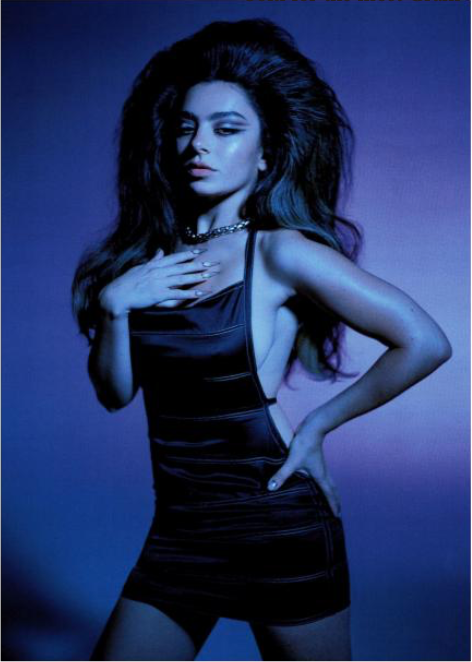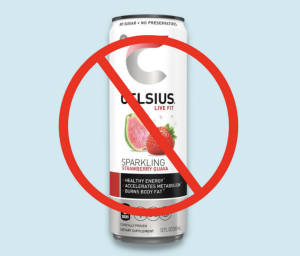The queens of pop ignored by the Grammys
February 22, 2023
On Feb. 5, just hours before the Grammys, singer-songwriter Charli XCX turned to Instagram to express her frustrations with the awards show.
Her post’s caption reads, “me not being nominated for a grammy for crash is like mia goth not being nominated for an oscar for Pearl and only further proves that people don’t wanna see hot evil girls thrive.”
Charli’s fifth studio album, “Crash,” was released in March 2022 and was eligible for several awards, including Best Pop Vocal Album.
“Crash” debuted to widespread commercial — and critical — success. It is Charli’s best-selling album to date, and “Pitchfork” listed the record as the nineteenth-best album of 2022.
Yet, it did not receive a single nomination.
Although “Crash” being snubbed is certainly frustrating, awards-season disappointment is nothing new for Charli. Despite rave reviews for “Pop 2,” “Charli” and “How I’m Feeling Now,” none of her projects have been recognized by the Recording Academy. Charli’s work has garnered a whopping total of two nominations from the awards body — both of which were for her early-career feature on Iggy Azalea’s hit single “Fancy.” She did not win for either.
Fellow experimental-pop artist Grimes agreed with Charli, commenting, “The Grammies are so irrelevant I wouldn’t even sweat it. I stopped even clocking them in any capacity when I Was on the producer of the year board and they quite literally would not allow me to nominate anyone who wasn’t on a pre fabricated list that was exceptionally boring. I was one of 3 women and the only person under 40 for sure. It’s literally not a relevant thing. I tried to nominate Sophie and was told that wasn’t allowed.”
Sophie, the late producer Grimes’s comment references, was a visionary in the world of hyperpop and a frequent collaborator of Charli’s. Her sole studio album, “Oil of Every Pearl’s Un-Insides,” was nominated for Best Dance/Electronica Album.
Despite the critical and cult appreciation of her third studio album, “Visions,” Grimes has, time and time again, been rejected by the Grammys. She is still waiting for her first nomination.
Although Charli XCX and Grimes are not nearly as popular or well-known as Harry Styles or Lizzo — two of the big winners at this year’s ceremony — both are still celebrities. Charli has over 15 million monthly listeners on Spotify; Grimes has just under 5 million.
Additionally, the categories Charli and Grimes’s albums are eligible for — Best Pop Vocal Album and Best Dance/Electronica album — often have enough room to nominate lesser-known artists.
Three of this year’s nominees for Best Pop Vocal Album — Adele, Harry Styles and Lizzo — are big-name artists in their primes. ABBA and Coldplay, who are both wonderful bands in their own right, put out their best work years — if not decades — ago. Further, Coldplay has racked up seven wins — and 34 nominations — at the Grammys throughout the band’s run.
The nominees for Best Dance/Electronica Album at the 56th Annual Grammy Awards — at which Grimes’s “Visions” was eligible for awards consideration — were The Chemical Brothers’ “Don’t Think,” Deadmau5’s “Album Title Goes Here,” Kaskade’s “Fire & Ice,” Skrillex’s “Bangarang” and Steve Aoki’s “Wonderland.”
No question, Deadmau5, Skrillex and even Steve Aoki, to some degree, are EDM legends — but The Chemical Brothers and Kaskade are not.
Even if Charli XCX and Grimes’s music is a little bit too left-of-center for the Grammys, it is the premier awards show in the world of music. Just as the Oscars have the potential to shed light on forward-thinking films, the Grammys can — and should — highlight the work of radical artists redefining the rules of genre.
Perhaps no one understands this issue better than Beyoncé and Tyler, the Creator.
At this year’s show, Beyoncé made history once again, winning her 32nd Grammy and passing composer Georg Solti for the most Grammy wins of all-time.
Yet, not one of her 32 wins is for Album of the Year.
After winning Best Rap Album for “IGOR,” a hard left turn — even for an artist as experimental as Tyler Okonma, also known as Tyler, the Creator — which pushes past our preconceptions of “rap music,” he called out the awards show’s continuous confinement of Black artists to the genre.
“It sucks that whenever we — and I mean guys like me — do anything that’s genre-bending, they always put in a rap or urban category,” Okonma said.
It seems as if anyone pushing the envelope — socially or sonically — is pushing too much for the Grammys’ taste.







